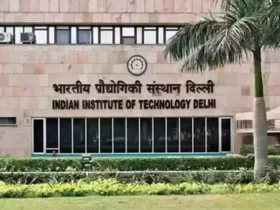October 10, 2024 | Gurgaon, India, A patient’s post-surgery experience at SCI Hospital in Gurgaon has sparked concerns over compliance and patient care practices. Mr. Gupta, who underwent a 360 surgery on October 5, 2024, alleges that he faced significant pain and a lack of support following the procedure, bringing to light serious questions regarding the hospital’s aftercare standards and third-party healthcare provider, Hexa Health.
SCI Hospital in Gurgaon Post-Surgical Care at Gurgaon Hospital
Gupta reported severe pain in the days following his surgery, which he claims was not addressed despite multiple attempts to reach Hexa Health for assistance. “I was given only a doctor’s contact number with no further guidance,” Gupta stated. The absence of adequate post-operative support has raised questions about Hexa Health’s role in ensuring the patient’s recovery process.
- Post-surgical pain not addressed
- Lack of follow-up or support from Hexa Health
- No meaningful medical advice provided post-surgery
SCI Hospital in Gurgaon
Another key issue in Gupta’s complaint revolves around a miscommunication about the recovery timeline. He was reportedly told that his recovery would only take two days, while the actual recovery period for a Lipo 360 procedure can be six to eight weeks. “The surgery was presented as a basic procedure, but critical details were left out,” he said. This discrepancy has raised concerns about how surgical risks and recovery expectations were communicated to the patient.
- Recovery time significantly longer than communicated
- Critical information not disclosed prior to the surgery
- Patient misinformed about the severity of the procedure
SCI Hospital in Gurgaon Discharge Concerns
Gupta also highlighted concerns surrounding his discharge from the hospital. He claims he was asked to leave the hospital the same day as the surgery, despite experiencing post-operative bleeding. This decision, according to Gupta, was driven by the hospital’s desire to avoid additional charges rather than patient welfare.
- Premature discharge despite medical concerns
- Pressure to leave hospital due to cost-related issues
- Lack of proper post-operative care monitoring
Ethical Concerns
Further compounding the issue are allegations of non-compliance with medical guidelines. Gupta asserts that the compression garment provided post-surgery was not approved by his attending doctor, raising concerns about the hospital’s adherence to standard post-operative care protocols. Additionally, he was not given a detailed breakdown of the surgery costs, medications, or equipment used, leading to questions about transparency in billing practices.
- Unapproved post-surgical compression garment provided
- Lack of transparency in billing and medical documentation
- Non-compliance with medical ethics and patient rights
surgery is a cosmetic procedure focused on removing fat from multiple areas of the body to achieve a more contoured appearance. However, the surgery requires proper post-operative care and communication regarding recovery expectations to ensure patient safety. The situation at SCI Hospital raises concerns about whether hospitals and third-party facilitators are prioritizing patient care over financial and operational efficiencies.
What This Means for Patients
Gupta’s case brings forward critical concerns about patient safety, transparency, and compliance in medical procedures. It also highlights the need for healthcare providers to ensure proper communication about recovery times, accurate post-surgery support, and transparency in billing practices.
- Hospitals must ensure proper aftercare to avoid complications
- Clear communication with patients is essential for trust and recovery
- Transparent billing practices are vital for patient confidence
This case serves as a reminder for healthcare providers and hospitals to maintain high standards of care, transparency, and communication. Gupta’s ordeal emphasizes the importance of post-surgery support and accurate information regarding recovery and treatment expectations. As healthcare services increasingly involve third-party facilitators, patient care must remain the top priority.




